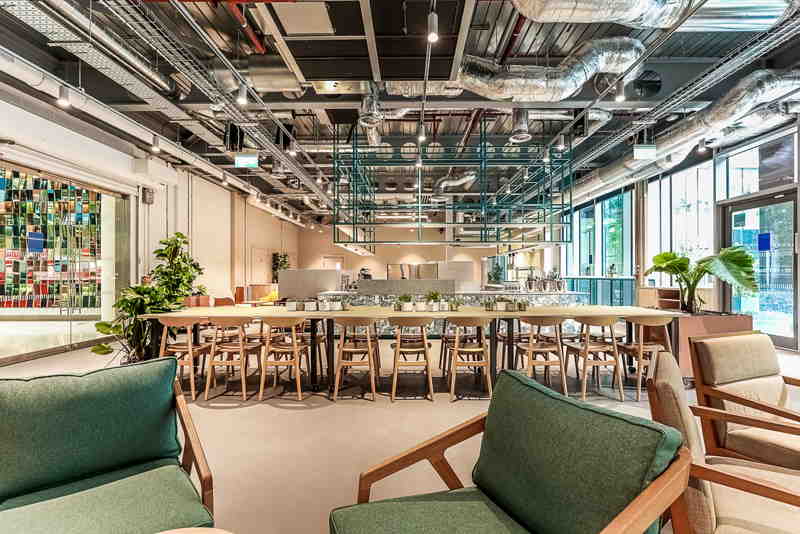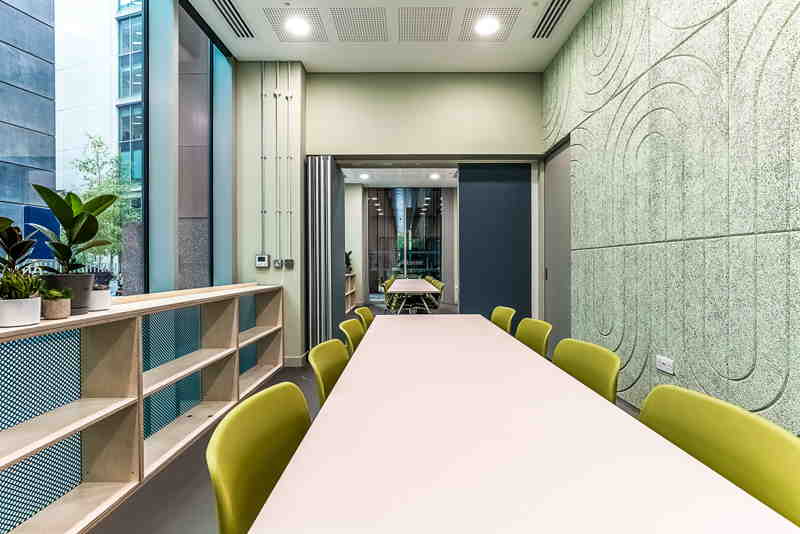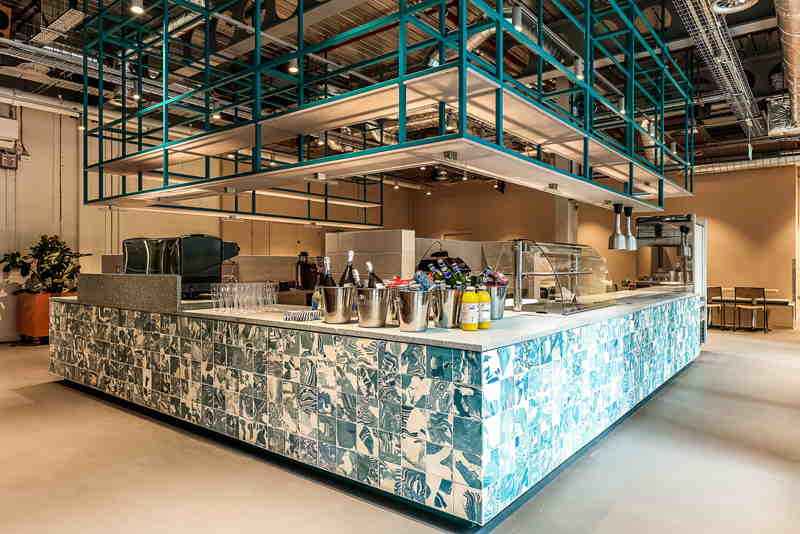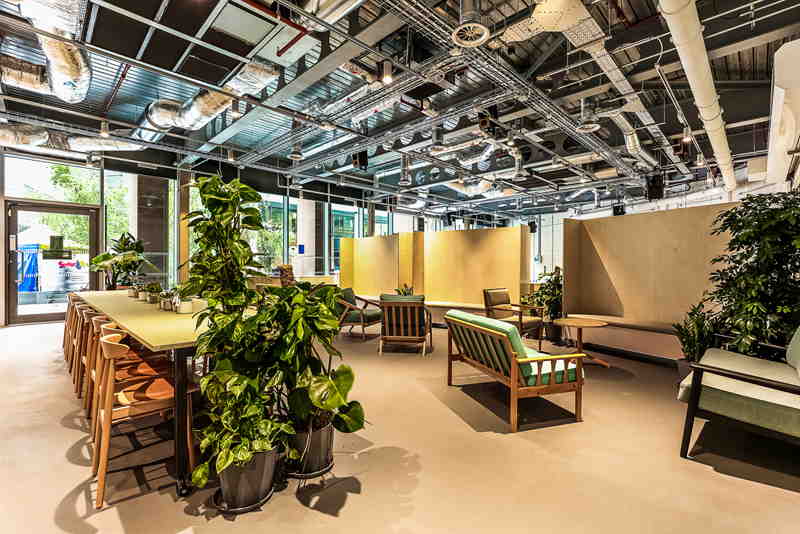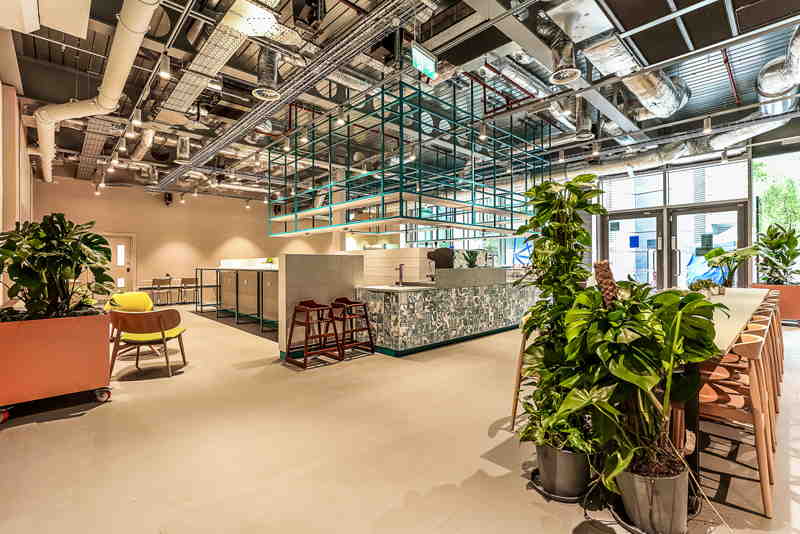Triton Cafe
British Land’s Triton Cafe sets a new benchmark for sustainability in the retail sector – a beautiful, high quality space with a tiny environmental footprint and a big community purpose.
Sustainable materials and furniture – with a strong community purpose
Triton Cafe is at the heart of British Land’s Regent’s Place, a 13 acre campus north of Euston Road. It is designed, by Produce UK, to bring together the 20,000 local workers, residents and community groups.
The cafe’s seating areas, meeting rooms and event space are available for initiatives to improve the connectedness and wellbeing of those on the campus and surrounding suburbs.
Consistent with its community purpose, Triton Cafe is a showcase for environmentally sustainability solutions.
Sustainable Materials
The cafe employs beautiful circular products and materials throughout. Along with furniture remanufactured by Rype Office, the main counter is faced with recycled hand-painted ceramic tiles, countertops are comprised of recycled ceramic materials by Alusid, benchtops are made from post-consumer waste plastic manufactured by Smile Plastics, and acoustic panels lining the meeting rooms were constructed from recycled wood by Baux.
Furniture Provenance
The 125 items of remanufactured furniture within the cafe have a rich and diverse history. As examples: the large Herman Miller and Vitra table frames had their first lives in the London offices of Amazon and Marks & Spencer respectively; much of the soft furniture was remanufactured after serving Facebook’s London headquarters in an adjacent building on the campus, and; the dining table bases were cleared from Cardiff Business School, refurbished and powder coated in a vibrant contemporary colour.
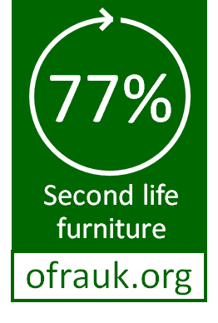
Environmental Benefits
Remanufacturing reduces the greenhouse gas emissions footprint of an item of furniture by 80%. From its decision to prioritise remanufactured furniture for the cafe over furniture from virgin resources, British Land saved 6,060kg of embodied carbon and avoided 1,140 kg of waste.
Closed Loop Campus
Triton Cafe demonstrates the value of strategic estates planning to deliver circular economy outcomes. The soft furniture was cleared from Facebook’s office on the campus, remanufactured in a vacant space on site and then installed into the café. Not only did this deliver cost savings when procuring furniture, it also reduced local traffic congestion, air pollution and greenhouse gas emissions from avoided transport.
Triton Cafe and the top 5 floors of neighbouring 338 Euston Road are the first steps towards a uniquely circular campus, in which furniture is remanufactured for multiple lives and occupants without loss of quality – but with substantial cost and community benefits.

